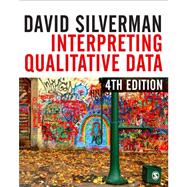
| Theory and Method in Qualitative Research | |
| What Is Qualitative Research? | |
| In Search of a Working Definition | |
| Loaded Evaluations of Research Methods | |
| Methods Should Fit Your Research Question | |
| The Good Sense of Quantitative Research | |
| The Nonsense of Quantitative Research | |
| The Good Sense of Qualitative Research | |
| The Nonsense of Qualitative Research | |
| Varieties of Qualitative Research | |
| Designing a Research Project | |
| Selecting a Topic | |
| Formulating a Researchable Question | |
| Fitting your Research Question into an Appropriate Theory | |
| Choosing an Effective Research Design | |
| An Effective Literature Review | |
| Basic Terms in Research Design | |
| Data Analysis | |
| Some Rules for Data Analysis | |
| Content Analysis | |
| Grounded theory | |
| Narrative Analysis | |
| Research Ethics | |
| Ethical Pitfalls | |
| Ethical Safeguards | |
| Some Ethical Complications | |
| Methods | |
| Ethnography and Observation | |
| The Ethnographic Focus | |
| Methodological Issues | |
| The Theoretical Character of Ethnographic Observations | |
| Interviews | |
| What is an 'Open-Ended' Interview? | |
| Why Interview? | |
| Implications: Three Versions of Interview Data | |
| Positivism | |
| Emotionalism | |
| Constructionism | |
| Adolescent Cultures: Combining 'What' and 'How' Questions | |
| Moral Tales of Parenthood | |
| The Three Models: a Summary | |
| Summary: Basic Issues | |
| Three Practical Questions - and Answers | |
| Focus Groups | |
| What are Focus Groups? | |
| Analysing Focus Group Data in Social Science | |
| Form or Substance? | |
| Concluding Comments | |
| Texts | |
| Structure of this Chapter | |
| Comparative Keyword Analysis (Cka) | |
| Ethnography | |
| Ethnomethodology: Membership Categorisation Analysis | |
| Naturally-Occurring Talk | |
| Why Work with Tapes? | |
| Transcribing Audiotapes | |
| Why Talk Matters | |
| Conversation Analysis | |
| Discourse Analysis | |
| Conversation Analysis and Discourse Analysis Compared | |
| Visual Images | |
| Kinds of Visual Data | |
| Research Strategies | |
| Content Analysis | |
| Semiotics | |
| Workplace Studies | |
| Research Practice | |
| Credible Qualitative Research | |
| Does Credibility Matter? | |
| Reliability | |
| Validity | |
| Generalisability | |
| Writing Your Report | |
| Beginnings | |
| Your Literature Review | |
| Your Methodology Section | |
| Writing Up Your Data | |
| Your Final Section | |
| a Short Note on Plagiarism | |
| Self-Expression or Argument? | |
| Implications | |
| The Relevance of Qualitative Research | |
| Three Roles for the Social Scientist | |
| The Audiences for Qualitative Research | |
| The Contribution of Qualitative Social Science | |
| Summary | |
| The Potential of Qualitative Research: Eight Reminders | |
| Take Advantage of Naturally Occurring Data | |
| Avoid Treating the Actor's Point of View as an Explanation | |
| Study the Interrelationships Between Elements | |
| Attempt Theoretically Fertile Research | |
| Address Wider Audiences | |
| Begin With 'How' Questions; Then Ask 'Why?' | |
| Study 'Hyphenated' Phenomena | |
| Treat Qualitative Research as Different from Journalism | |
| Concluding Remarks | |
| Table of Contents provided by Publisher. All Rights Reserved. |
The New copy of this book will include any supplemental materials advertised. Please check the title of the book to determine if it should include any access cards, study guides, lab manuals, CDs, etc.
The Used, Rental and eBook copies of this book are not guaranteed to include any supplemental materials. Typically, only the book itself is included. This is true even if the title states it includes any access cards, study guides, lab manuals, CDs, etc.